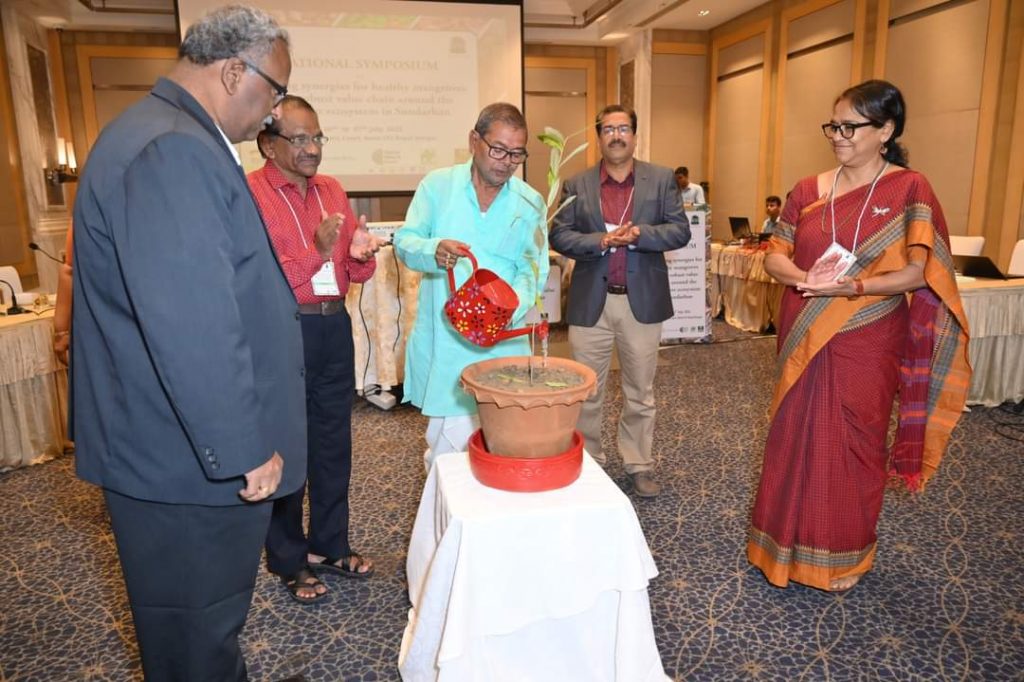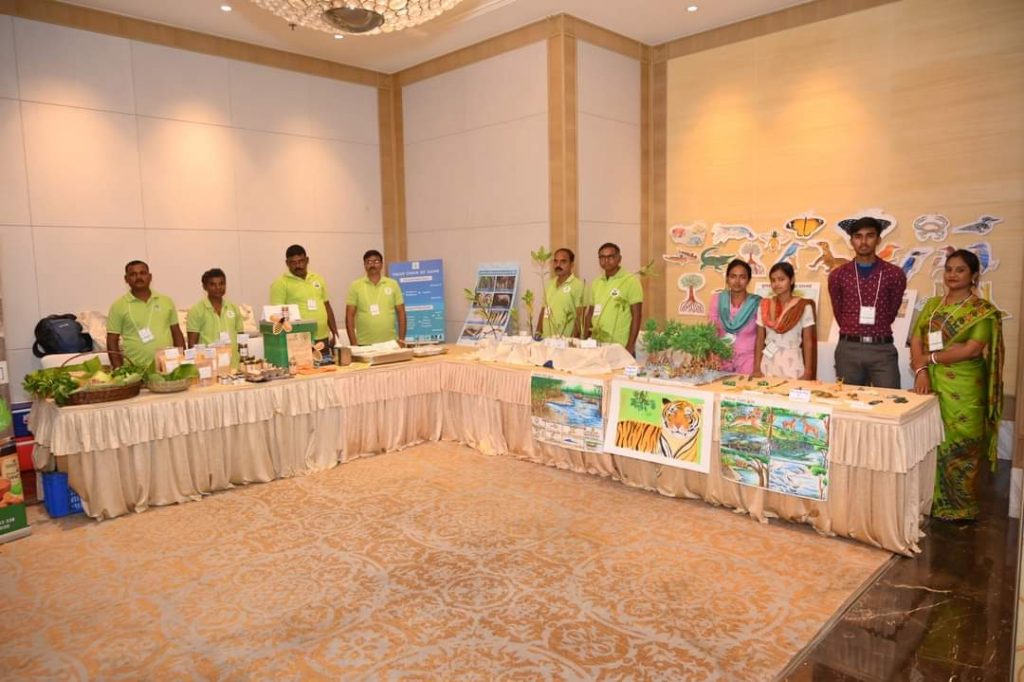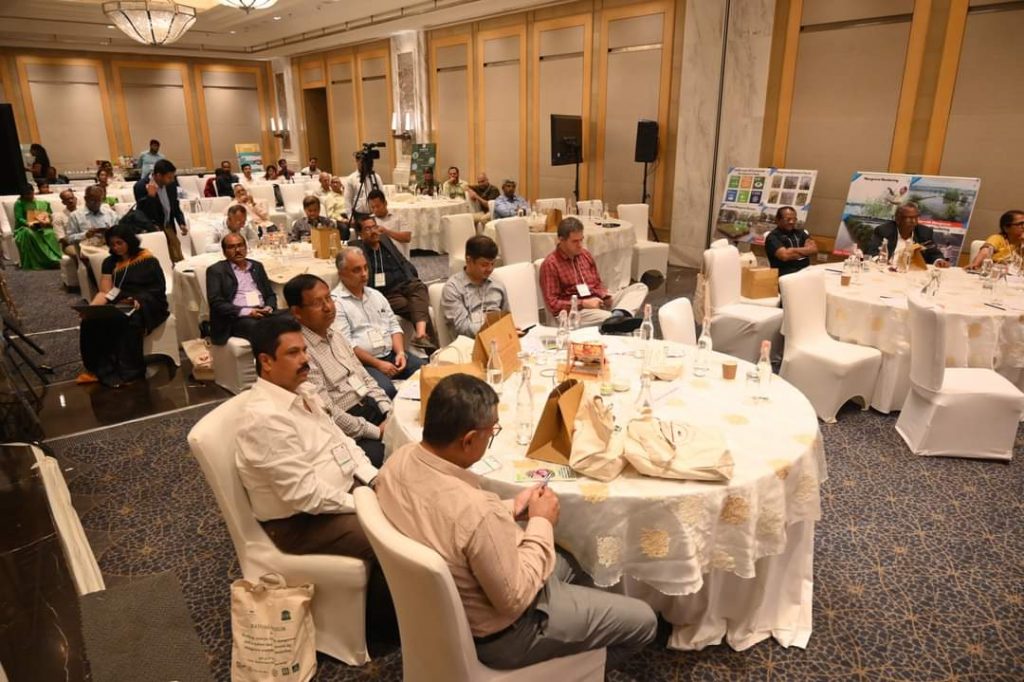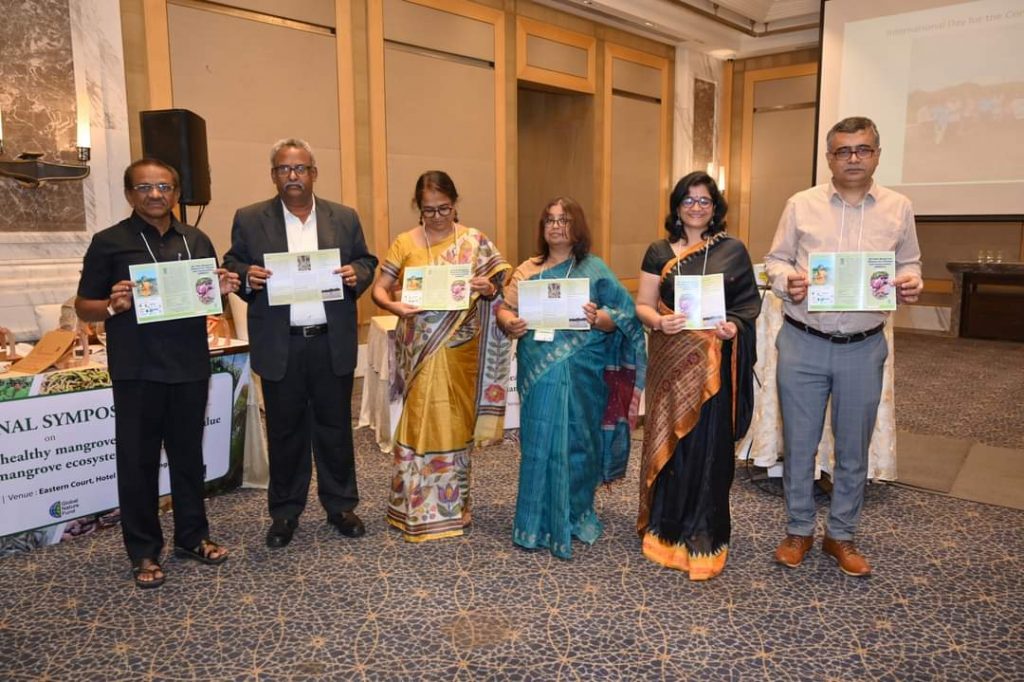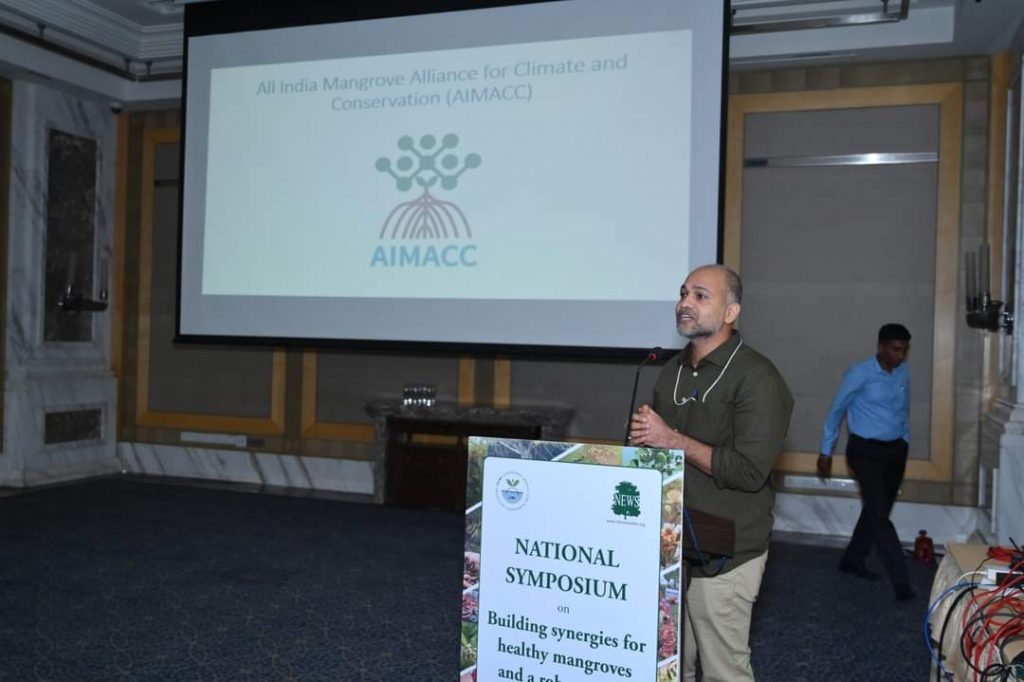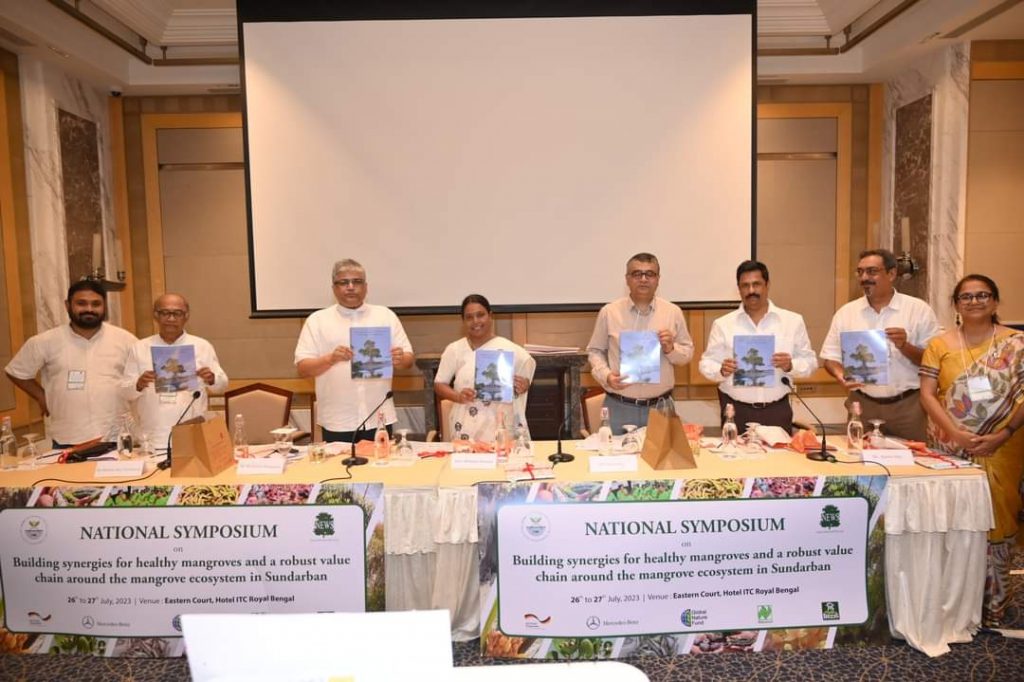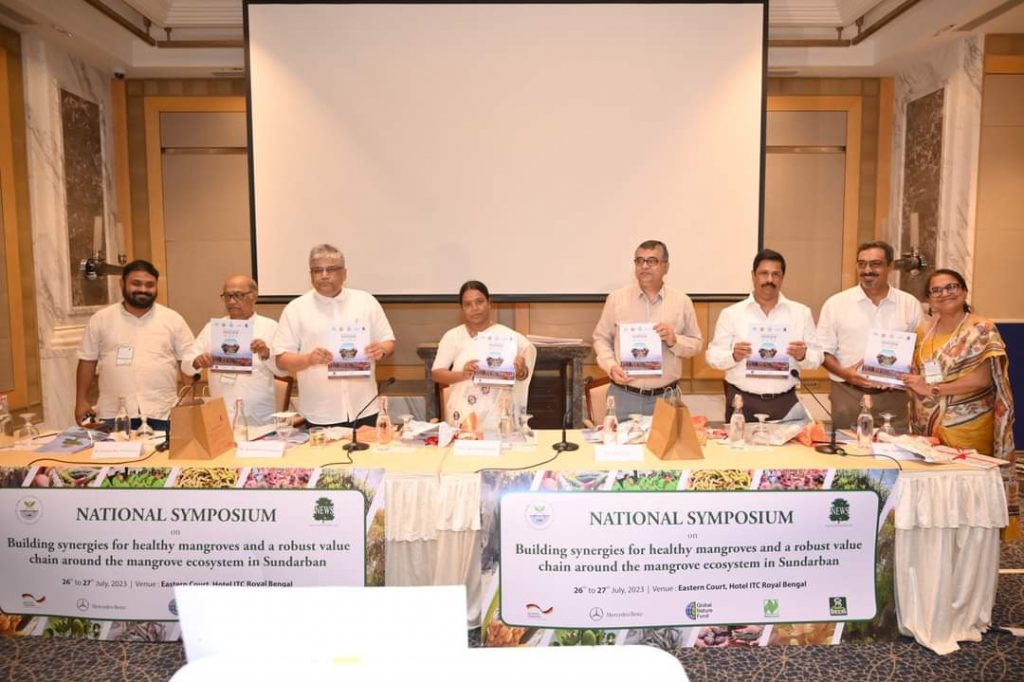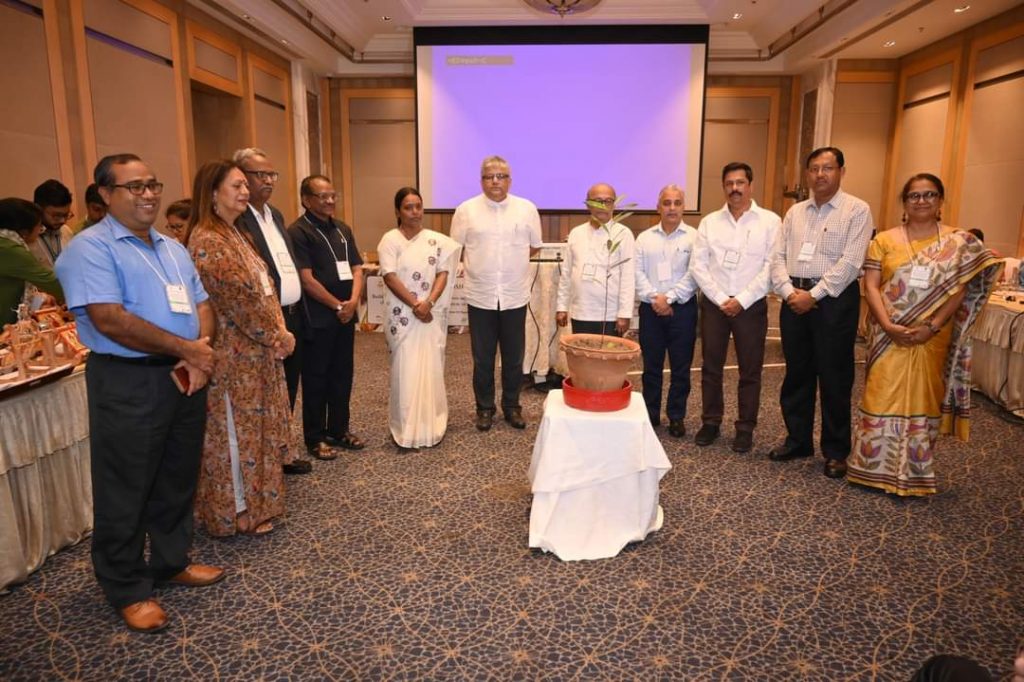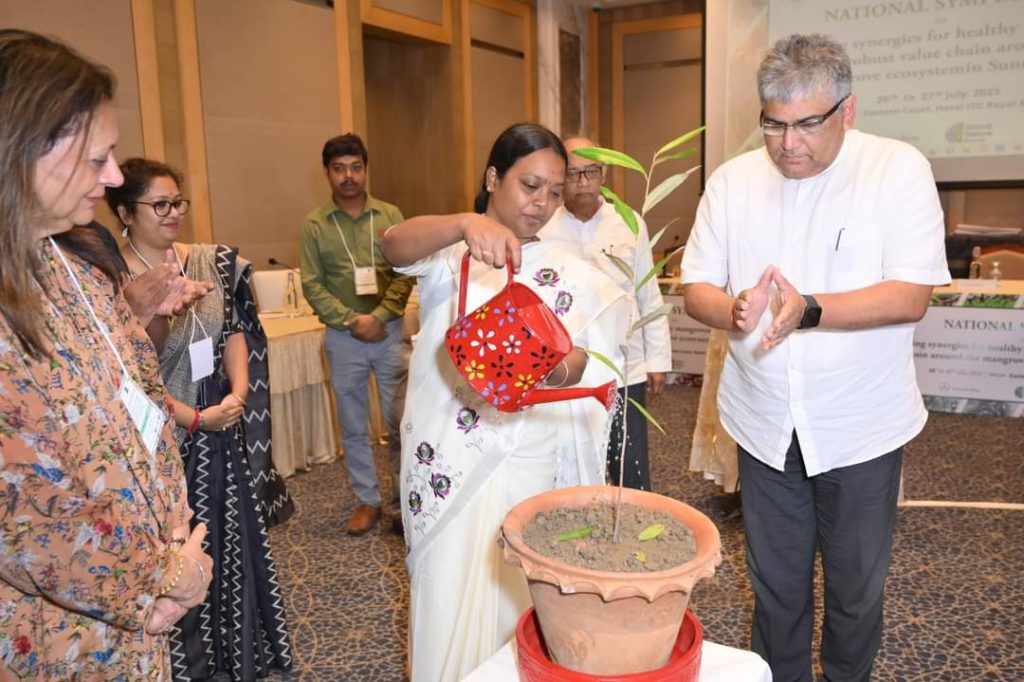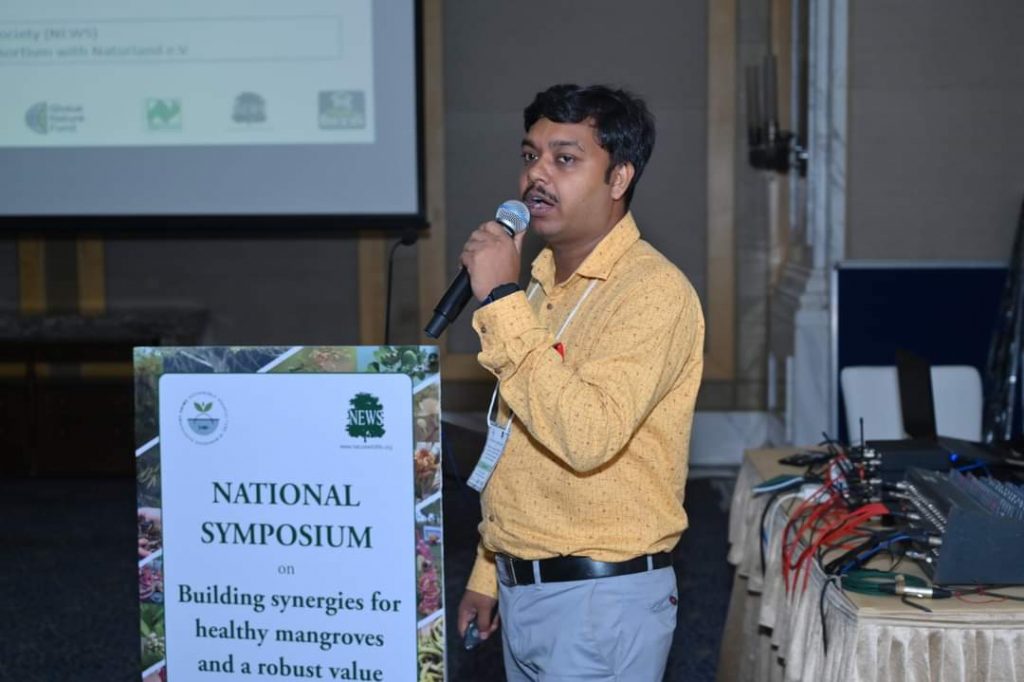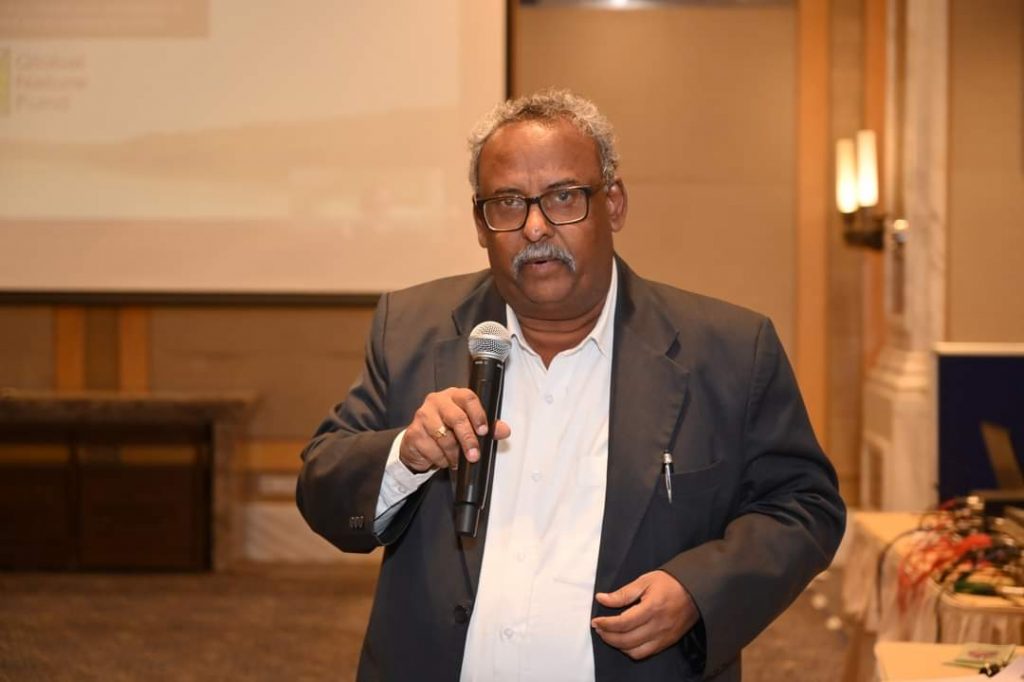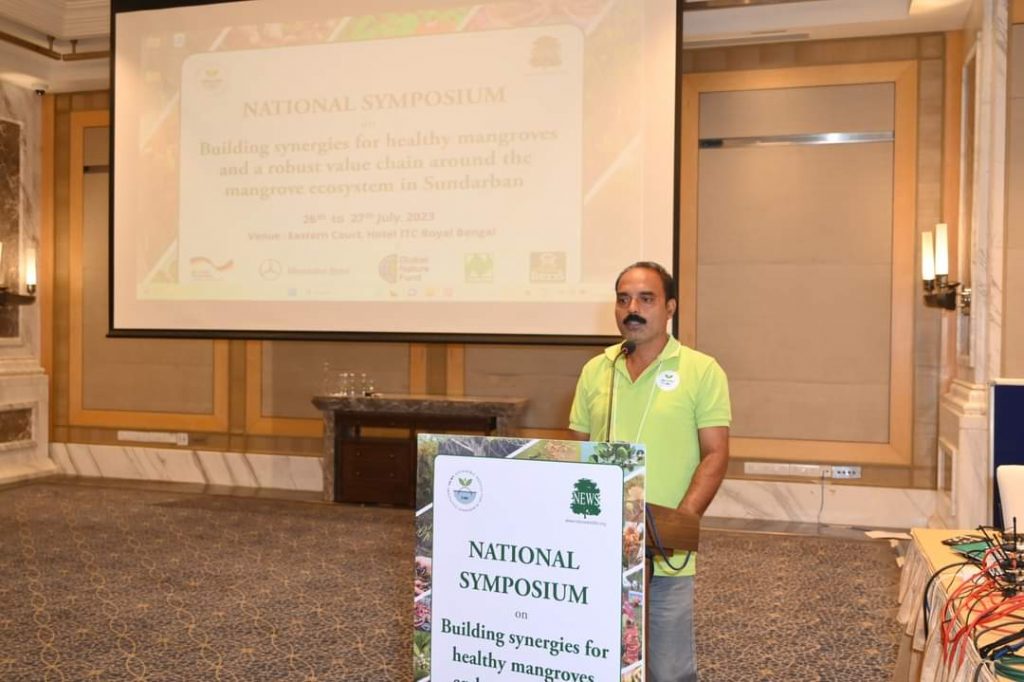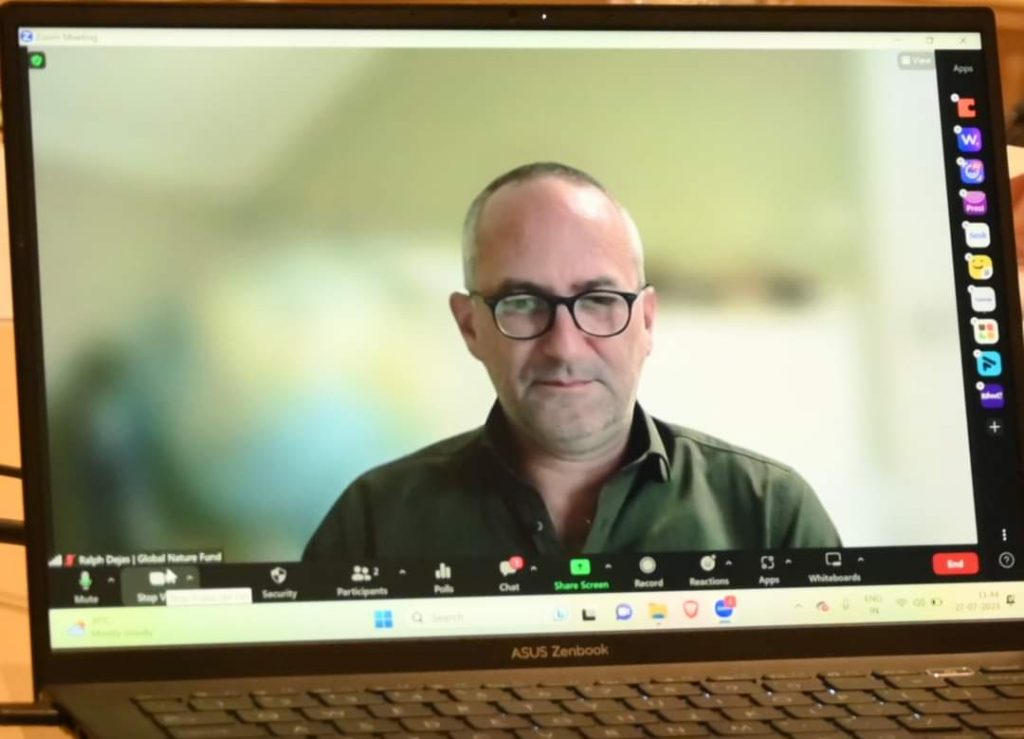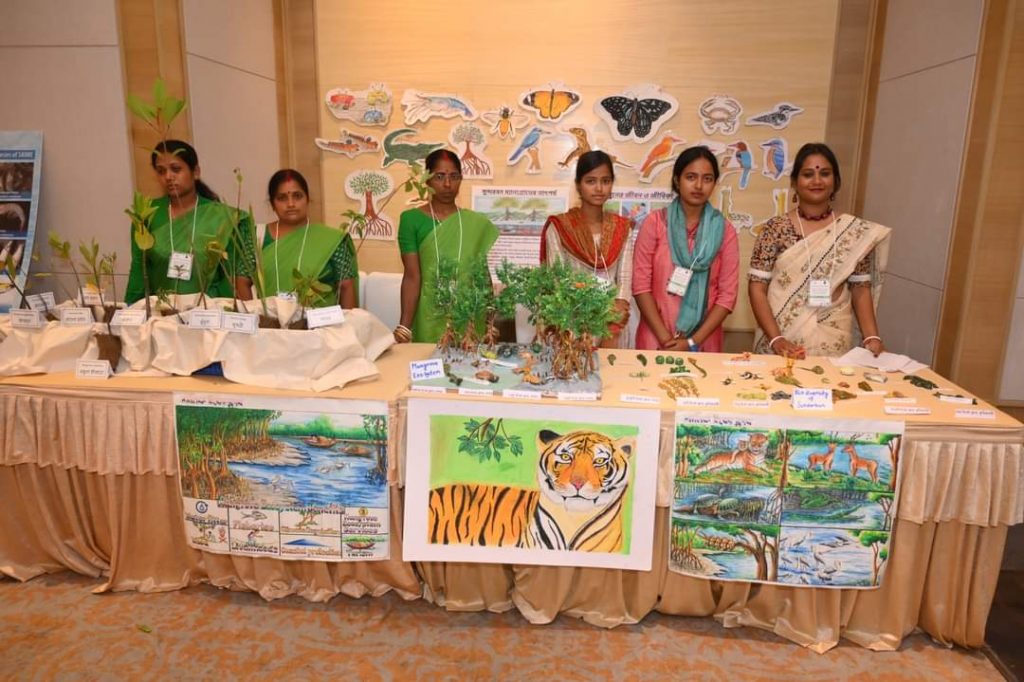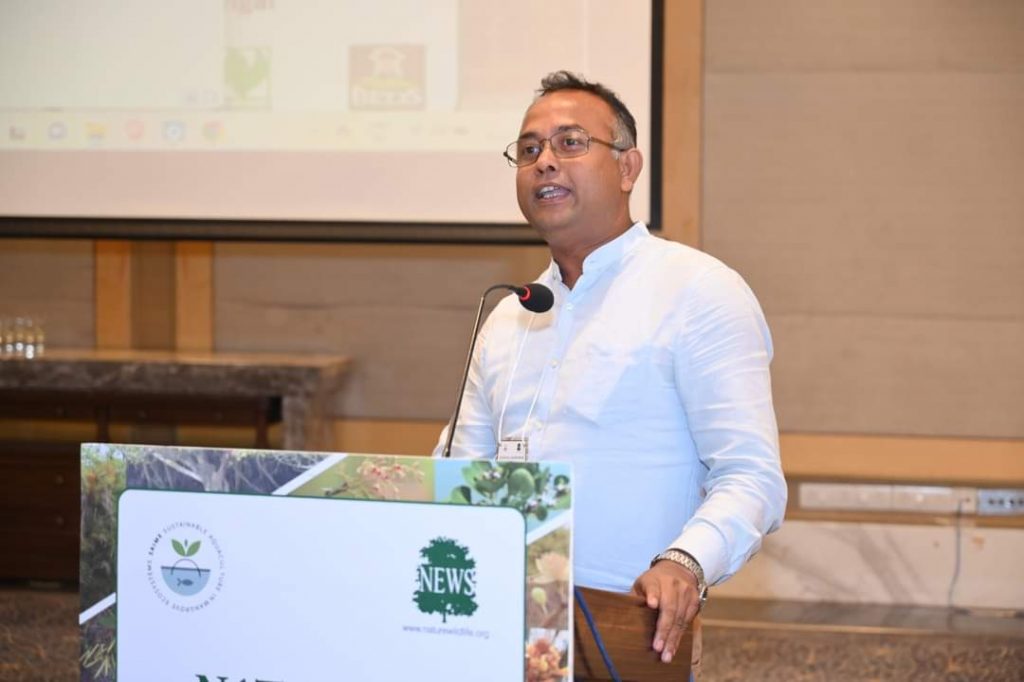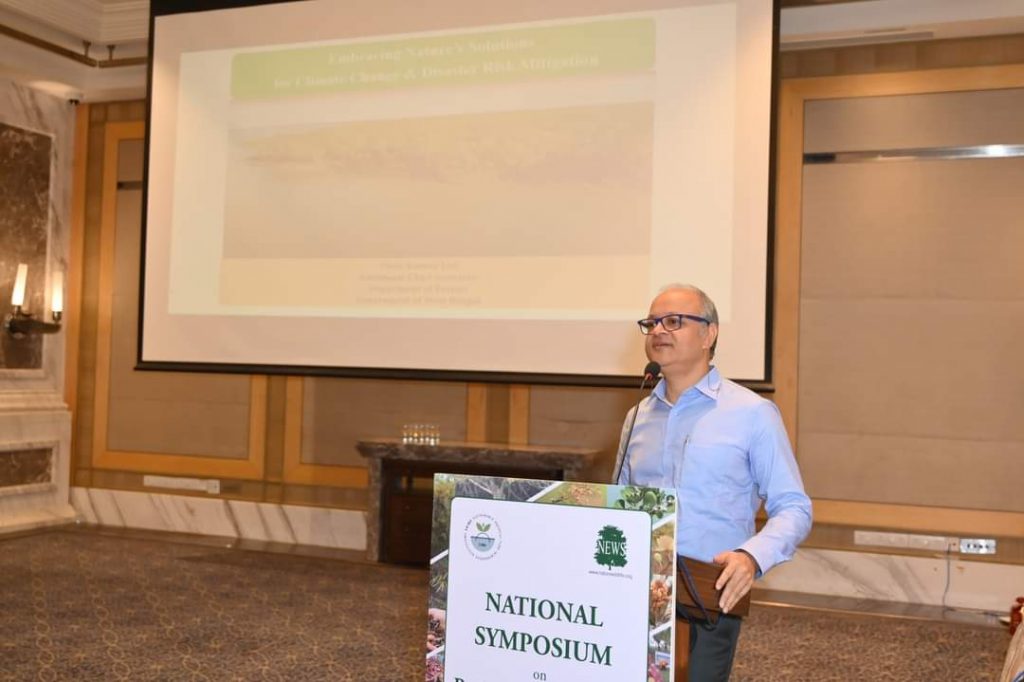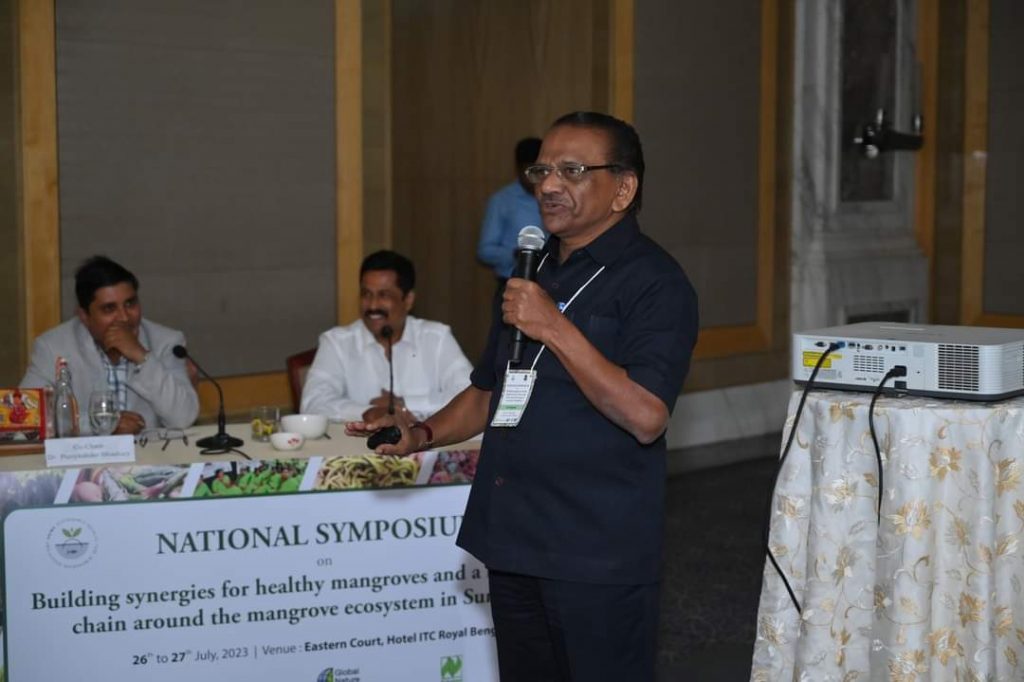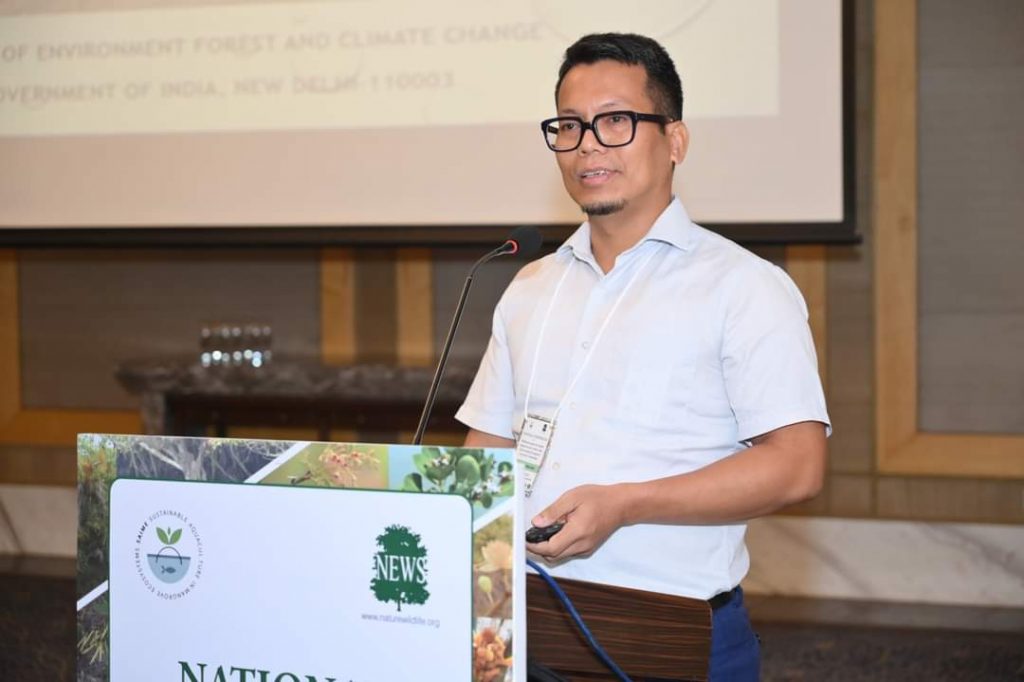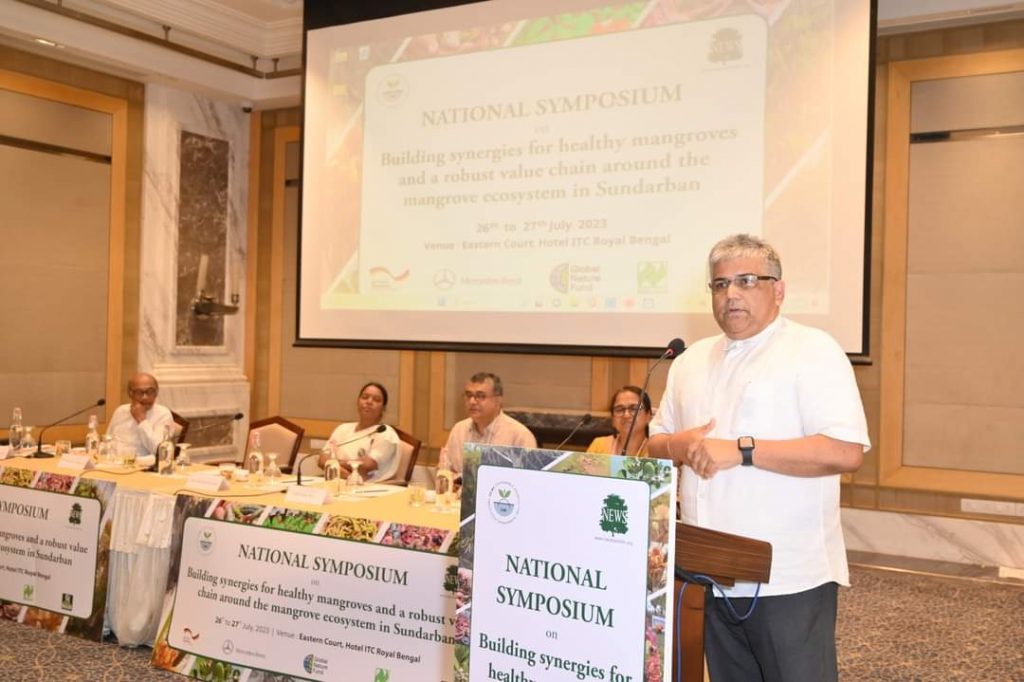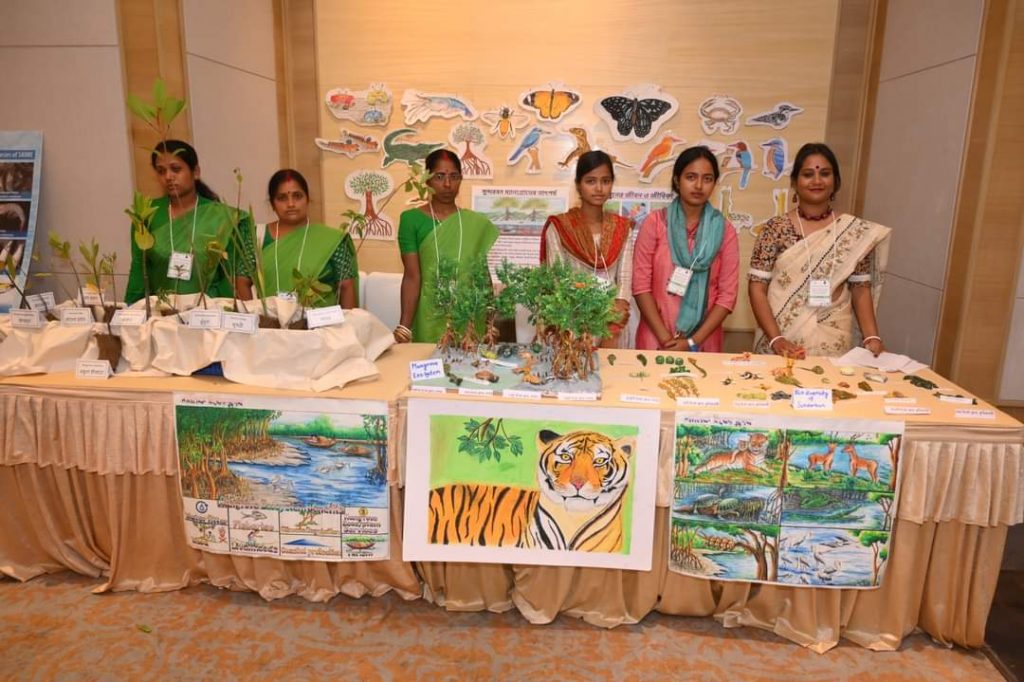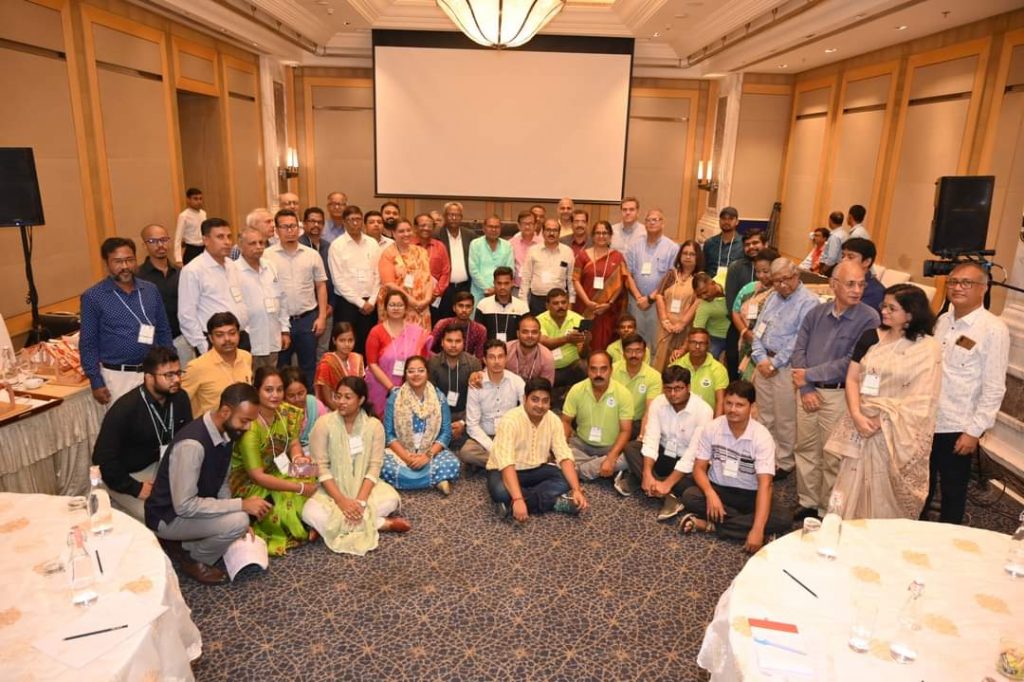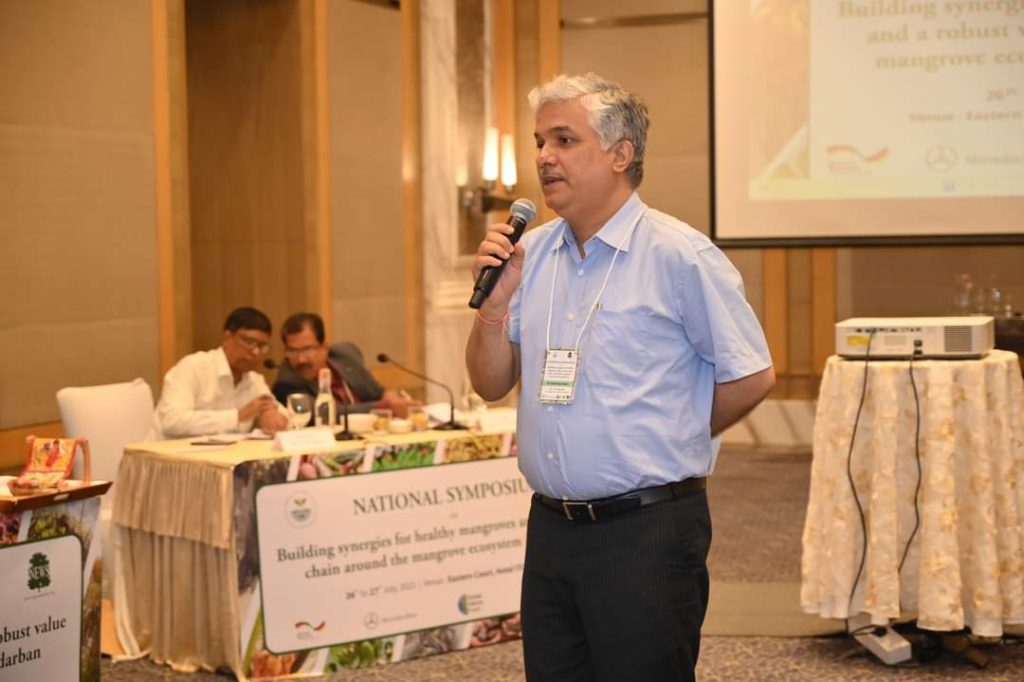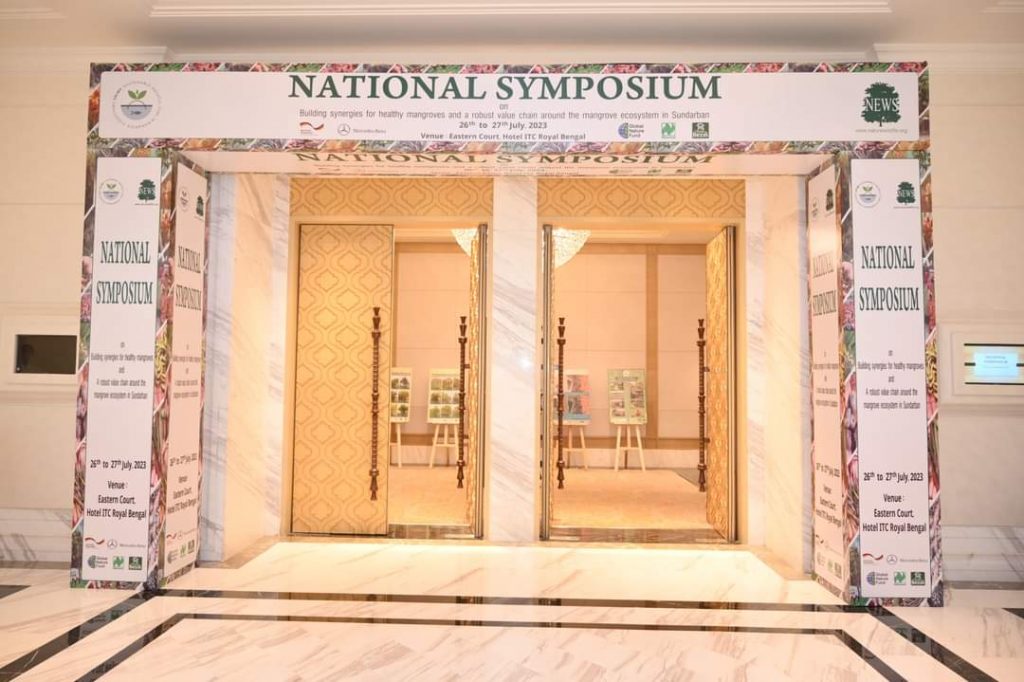On 26th & 27th July 2023, Nature Environment & Wildlife Society (NEWS), in technical collaboration with the Department of Forests, Govt. of West Bengal organized a two-day National Symposium on “Building synergies for healthy mangroves and robust value chain around the mangrove ecosystem in Sundarban’’. The prime focus of the symposium was to initiate the dialogues in a multistakeholder milieu and develop synergies between them for conservation of the mangrove ecosystem and to find ways for developing strong and sustainable value chain around the mangrove ecosystem. One of the objectives of the symposium was also to advocate “Sustainable Aquaculture in Mangrove Ecosystem (SAIME)”in Sundarban.
On the opening day of the national symposium, the formal inauguration of the programme was done by Smt. Birbaha Hansda, Hon’ble Minister-of-State, Department of Forests, Government of West Bengal, by watering a “Sundari” plant which was followed by an address from Mr. Soumitra Dasgupta, PCCF & HoFF, Directorate of Forest. Release of a book named “Indian Sundarban at Crossroads” prepared by Dept. of Forests, Govt. of West Bengal and the release of Bengali version of “Mangrove Manual” prepared by NEWS took place in the inaugural session. This was followed by a special address from Mr. Vivek Kumar, the Additional Chief Secretary of Department of Forests, Govt. of West Bengal, where he focussed on the state’s roadmap for mangrove conservation in the Indian Sundarban. He also announced the formation of “Mangrove Cell” by the Forest Department. Other High-level officials from the state forest department – Sri Debal Ray, Sri Sandeep Sundriyal, Sri Saurabh Chaudhuri, Sri Subhankar Sengupta, Sri Nilanjan Mallick, Sri Ajay Das to name a few, were also present in the programme.
The second day of the symposium was inaugurated by the chief guest, Mr. Bankim Chandra Hazra, Minister- in- Charge, Dept. of Sundarban Affairs, Govt. of West Bengal.
Besides the Department of Forests, Government of West Bengal, various Govt. departments, representative from Ministry of Environment, Forest and Climate Change (MoEF&CC), Government of India, representatives from World Bank, Department of Fisheries, Govt. of West Bengal and other allied sectors actively participated in the event along with luminaries from the mangrove and fisheries arena who have contributed immensely in their respective fields, shared their valuable views and advice on the discussion topics. Sri Prabhat Mishra, Principal Secretary, Irrigation & Waterways, Govt. of West Bengal, Prof. K Kathiresan, Annamalai University Dr. Ravi Shankar Thupalli, International Mangrove Management Specialist, Dr. KK Vijayan, Former Director, Central Institute of Brackishwater Aquaculture (CIBA) to name a few, were also present in the programme. Many leading CSOs from India like CReNIEO, SaciWATERs, WWF-India participated in this two-day national symposium. Mr. Ralph Dejas, Project Manager of Global Nature Fund (GNF) shared the experience on SAIME in the context of Sundarban. Bangladesh Environment and Development Society (BEDS) and NEWS shared their experience on SAIME in the Bangladesh and Indian Sundarban context respectively. The All India Mangrove Alliance for Climate and Conservation (AIMACC) in the East Coast of India was also formally declared in this programme. Representatives from Marine Products Export Development Authority (MPEDA) and Agricultural and Processed Food Products Export Development Authority (APEDA) also participated in this programme and informed the house about the scope of transformative changes along the value chain and the significance of organic production and certification.
Overall, the symposium provided ample space for partners to interact and engage in strengthening the roadmap enabling the policies for nature based, situation specific and ecosystem-based solutions, for “healthy mangroves” and “thriving coastal communities” in Sundarban with a “robust community inclusive value chain” to be in place in the context of climate change.
